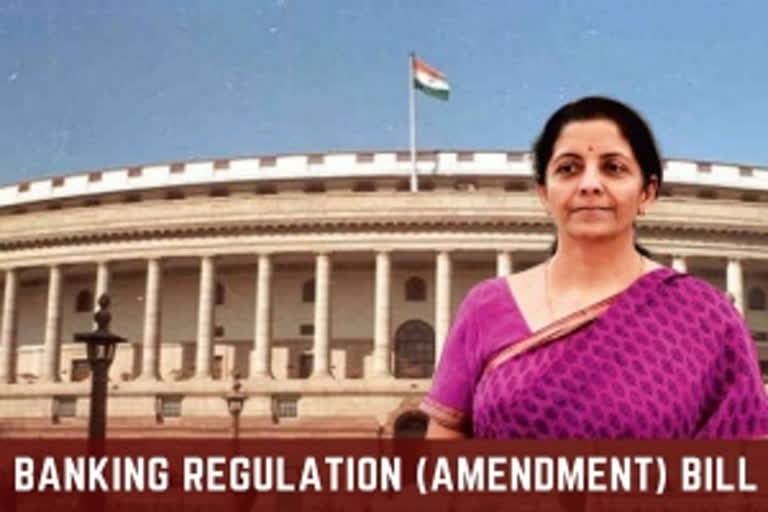New Delhi: The Banking Regulation (Amendment) Bill passed by the Lok Sabha on Wednesday would allow the Reserve Bank to take management control of a bank for its reconstruction or merger with some other bank without imposing a ban on withdrawal from the bank.
The changes approved by the Lok Sabha on Wednesday will allow the RBI to supersede the board of a troubled bank without imposing a moratorium on withdrawals, which was a serious lacuna in section 45 of the Banking Regulation Act of 1949.
It required the Reserve Bank to impose a moratorium on transactions as a precondition before merger or reconstruction of a struggling bank but it invariably dented the depositors’ confidence in the banking system.
The amendments will allow the Reserve Bank to avoid a repeat of Yes Bank like situation when it’s decision to supersede the board of the bank founded by high profile businessman Rana Kapur sent shockwaves across the banking industry.
“Amendment of section 45 to address the potential disruptions in the financial system by providing for the Reserve Bank of India to prepare a scheme for the reconstruction or amalgamation of the banking company without the necessity of first making an order of moratorium,” Finance Minister Nirmala Sitharaman said in the Bill.
Also Read: Changes in banking regulation law aimed at improving governance in cooperative banks: FM
In March this year, the Reserve Bank superseded the board of Yes Bank and capped the withdrawal at Rs 50,000 per customer.
It sent shockwaves across the banking industry and millions of jittery depositors queued outside the branches of Yes Bank to withdraw their hard-earned money.
The RBI’s decision to cap the withdrawal, which was a pre-condition before its restructure by a consortium led by the State Bank, stoked the fear that Yes Bank may also follow the path of Punjab and Maharashtra Cooperative Bank (PMC Bank) whose millions of depositors are still struggling to get their money back.
Although the RBI removed its restrictions on withdrawal from the Yes Bank in less than a month, the damage to the financial system was already done.
Scores of nervous depositors immediately withdrew their money from the Yes Bank no later than the cap was lifted by the RBI.
PMC Bank woes continue
Though the Yes Bank has stabilised to a large extent under the Reserve Bank’s supervision, tens of thousands of PMC bank customers are still struggling to get their money back.
In September last year, the Reserve Bank put a cap on withdrawal from the PMC Bank at Rs 1,000 following the reports of irregularities in the bank’s dealing with the home loan financing company HDIL.
The curbs on withdrawal seriously dented the customer’s confidence in the banking system.
It also prompted the government to strengthen the Reserve Bank’s oversight over cooperative banks to prevent a repeat of such a situation and give the RBI flexibility to carry out reconstruction or merger without imposing bans on withdrawals.
Also Read: Centre introduces eight Bills in opening Monsoon session


